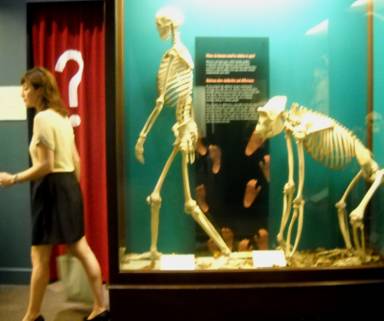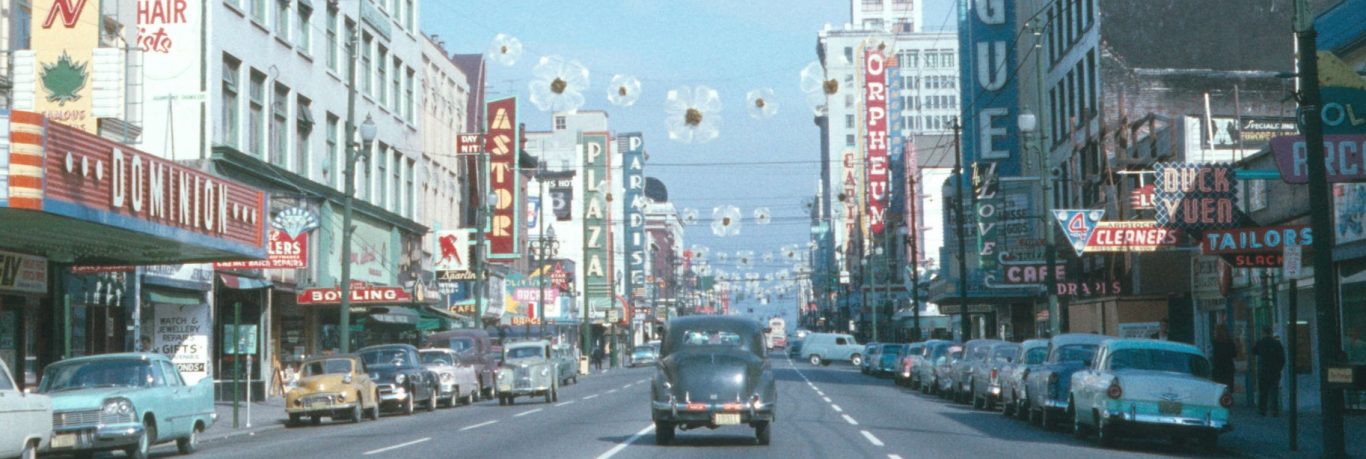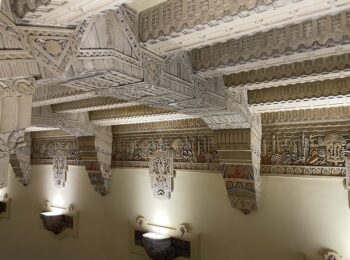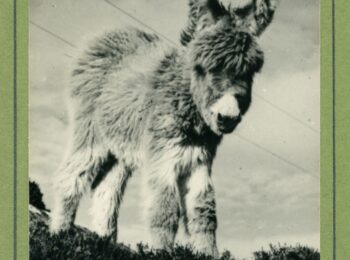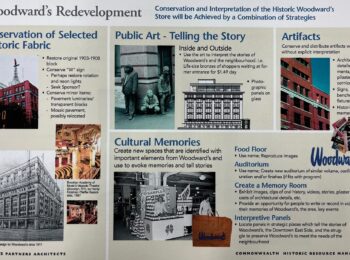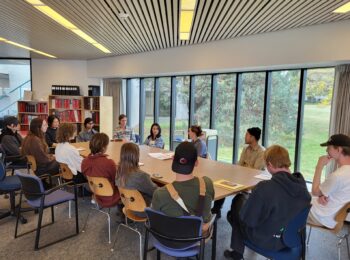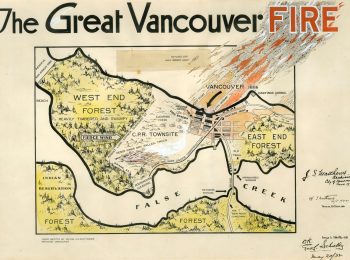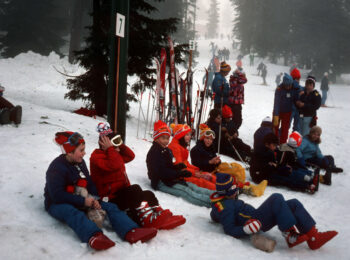Archivists work alone most of the time. We at the City Archives are fortunate to have other professional staff in the same building, but our work is largely solitary by nature. This summer in Chicago, no archivist was alone for long at the 75th Annual Society of American Archivists conference, where over a thousand professional archivists came together to share knowledge and connect with each other.
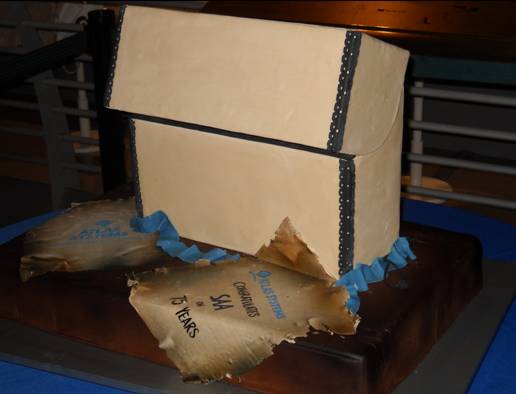
This year, three archivists from the City had presentations accepted at SAA: Glenn Dingwall, Cindy McLellan and Courtney Mumma. All three of us (self-funded with the exception of Mumma) attended the full conference in Chicago, so we’d like to share some of our experiences and highlights with you.
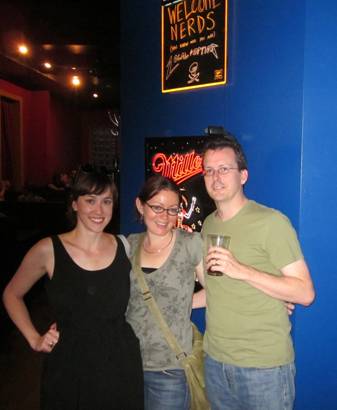
Glenn Dingwall
- Archivematica users meeting: This was a group of archives professionals and educators meeting to discuss Archivematica. We are a significant collaborator in the development of this digital preservation system. The room was packed to overflowing with archivists from institutions all over North America, including the Rockefeller Archive Center, the International Monetary Fund, the University of California at San Diego Libraries and the California Digital Library.
- Session 610. Practical Approaches to Born-Digital Records: What’s Coming Next: Ricc Ferrante from the Smithsonian Institution Archives chaired this session in which I presented with Peter Van Garderen (Artefactual Systems, Inc.), Paul Jordan (IMF) and Angela Jordan (University of Illinois) about using Archivematica to manage born-digital records. Over 200 people attended and contributed welcome feedback on future project goals.
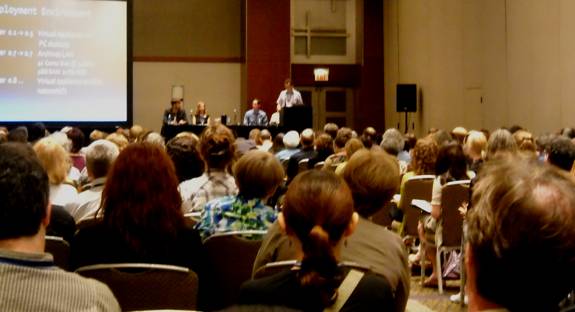
- Session 101. Skeletons in the Closet: Addressing Privacy and Confidentiality Issues for Born-Digital Materials. This was a discussion of problems associated with providing access and rules-based access policies.
- Session 207. The Future Is Now: New Tools to Address Archival Challenges. Particularly notable was Peter Bajcsy and Ken McHenry presenting on the National Center for Supercomputing’s Polyglot , a promising potential normalization tool that Archivematica can link to or draw on, as well as Maria Estevez (Texas Advanced Computing Center) on using visual analytics to tease order from large complex directory structures.
- Cubs v Braves: Around 200 archivists in attendance enjoyed the Cubs play the Braves at Wrigley field. And the Cubs actually won the baseball game!
Cindy McLellan
- SUE: The largest, best-preserved and most complete Tyrannosaurus Rex ever found, SUE presided over the opening gala of the conference. Attendees were allowed to explore many of the Field Museum’s wonderful exhibits while they mingled.
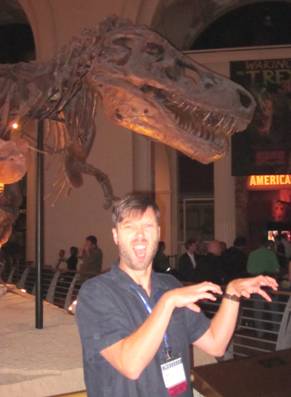
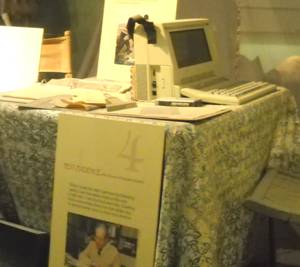
- Chicago public art: In 1978 the city of Chicago approved legislation to require that 1.33% of the cost of constructing or renovating municipal buildings and public spaces be devoted to original artwork on the premises. This investment in art is evident to anyone walking around the city. The Bean is an engaging piece that is shined up each day reflecting the city and tourists alike. Predating the Percent for Art Ordinance but often cited as an inspiration to the rest of the city is an untitled sculpture by Pablo Picasso dedicated in 1967.
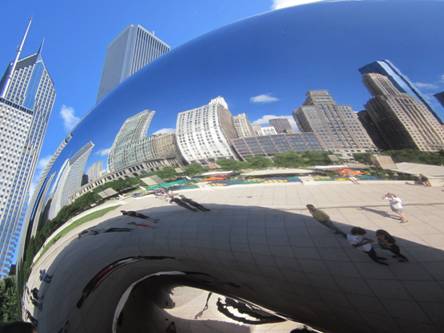
- Session 209. Graduate Student Archivists Paper Session. As a new graduate of UBC’s School of Library, Archival and Information Studies (SLAIS), I funded my own way to present a paper on the importance of archival outreach to the success of digital preservation. This paper combined two research projects that I worked on while a Graduate Research Assistant with the InterPARES project at UBC. UBC was honored to have not one, but two students representing them, as Lisa Snider also presented on archival websites and accessibility. In the spirit of celebrating the SAA’s Diamond Jubilee, Tiffany Minaret Sakato, New York University, compared the Annual Meeting opening address speeches of the first ten SAA presidents to the speeches given in the past ten years.
Courtney Mumma
- Metadata and Digital Object Roundtable, the Archivists’ Toolkit / Archon Roundtable and the Electronic Records section meeting: The roundtables and session meetings were wonderful opportunities to hear from other archivists who share my particular interests in the field and shared innovative solutions to contemporary archival processing and description problems.
- Annual General Meeting: Since this was my first time attending the SAA conference since I became a voting member 5 years ago, I was able to vote along with an outstanding majority to allow on-line voting in all future elections. Since many archivists who are members of the SAA cannot afford to attend, this new capability is very important.
- UBC SLAIS Meetup: Even though there weren’t that many of us, it was fun to meet other professional archivists who earned their masters from SLAIS.
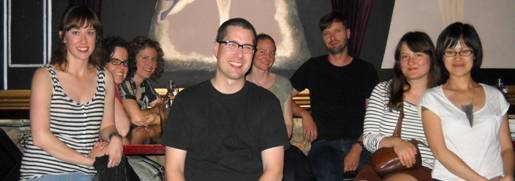
- Tweetup: After the SLAIS meetup, some of us attended the nearby Tweetup. All of the attendees wore their Twitter handles on nametags so we could all meet our Twitter heroes and mingle in an informal setting. I finally got to meet (briefly), Rebecca Goldman (@DerangeDescribe), archivist and author of the hilarious and informative blog Derangement and Description, who presented me with my “Deranger” ribbon for my SAA name badge. Even into the wee hours, most conversation was about archives because we really like what we do!
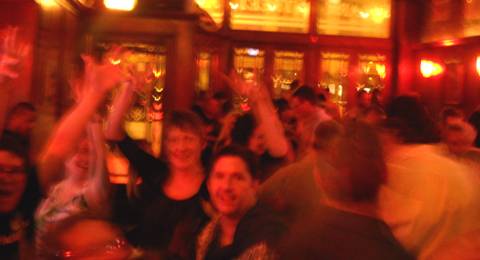
- Scene Savers: At the vendor fair, I had the opportunity to meet the friendly representatives from Scene Savers, whose professionals have worked with the Archives since 2008 to digitize and make available many of our audiovisual holdings.
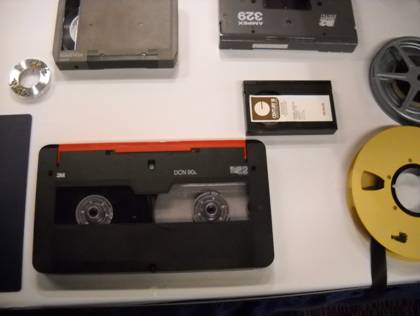
- Session 709. Archivists in the Midst: Collaborating with Records Creators for Early Intervention. I presented with Adrienne Lai (North Carolina State University) and Stephanie L. Kays (Minneapolis Institute of Arts) about how appraisal, functional analysis, records review and digital preservation can benefit from early intervention, negotiations and collaborations between records creators and archivists. I shared my experience acquiring the records of the Vancouver 2010 Bid Corporation and the Vancouver Organizing Committee for the 2010 Olympic and Paralympic Winter Games.
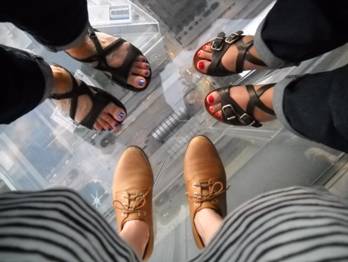
Annual meetings drive the kind of collaboration that helps the archival field… EVOLVE. Yuck yuck yuck.
